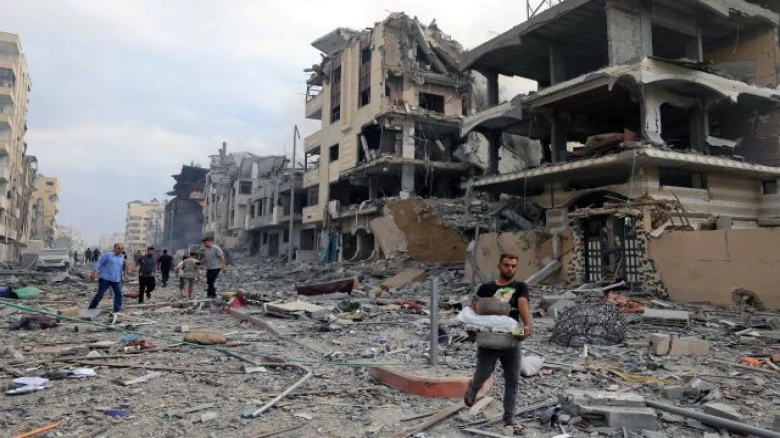Regional

The report, conducted during a humanitarian pause from November 24 to 30, exposes alarming statistics...
Digital Desk: Amidst the escalating conflict between Israel and Hamas, a recent report by the World Food Programme (WFP) sheds light on the harrowing food scarcity crisis gripping Gaza. The report, conducted during a humanitarian pause from November 24 to 30, exposes alarming statistics: 91% of households in Gaza reported going to bed hungry, with 63% enduring entire days without any food.
This acute food shortage has been exacerbated by the ongoing conflict, which has kept Gaza under siege since October 7, allowing only one border crossing for humanitarian aid. The WFP's rapid food security assessment uncovered distressing details, revealing that 42% of households in the Northern governorates and 35% in the Southern governorates reported knowledge of individuals resorting to consuming wild or raw food to stave off hunger.
The situation in the north of Gaza appears significantly more dire, with limited aid concentrated primarily in the south, entering through the Rafah border crossing with Egypt. However, aid delivery has slowed significantly since the expiration of the second truce deal on December 1, intensifying the struggle for basic necessities.
Moreover, the acute shortage of cooking gas has forced reliance on less clean fuel sources, heightening the risk of respiratory diseases. Access to clean water also remains critically low, with north Gaza averaging only 1.8 liters per person per day and south Gaza receiving merely 1.5 liters per person per day.
As the crisis deepened, United Nations Relief and Works Agency for Palestine Refugees (UNRWA) chief Philippe Lazzarini voiced the agency's sense of abandonment in Gaza. Lazzarini expressed profound disappointment, emphasizing that after the loss of thousands of lives and mass displacement, the international community's failure to agree on a ceasefire has left both ordinary Palestinians and aiding agencies in a state of despair.
Lazzarini revealed the dire circumstances, stating, "Too many people haven't eaten now for two, three days in the Gaza Strip." He cautioned that the breakdown of civil order could jeopardize the agency's ability to function effectively.
According to the Hamas-run Palestinian health ministry, the conflict has resulted in nearly 18,000 casualties since Israel's retaliatory operations following the militant group's attack on October 7 in southern Israel.
As the conflict rages on, urgent calls for immediate humanitarian intervention resonate. The report stands as a distressing testament to the urgent need for international aid and intervention to alleviate the intensifying crisis in Gaza.
Leave A Comment